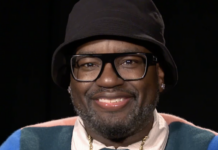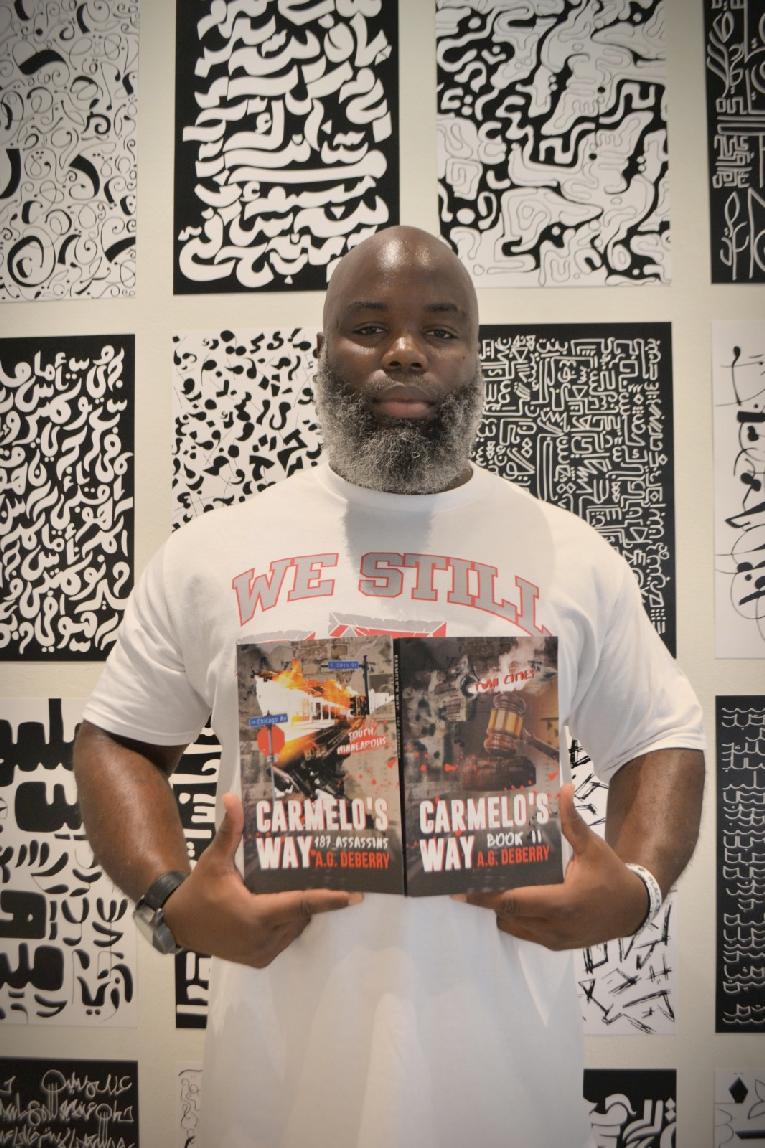
*The incidence of violence and murder in the Black community is prevalent in recent times. In cities across the country, Black men and Black women have been killed at an alarming rate.
According to WHYY.org, in Philadelphia, Pennsylvania, there were 300 murders in 96 days in 2021. In Chicago, according to WBEZ.org, there were 524 murders in 2021.
In cities across the US, in many of the urban centers of societies, violence is increasing, particularly in communities of color. It is a troubling aspect of many Black, financially challenged, urban centers of the US. Those that have made unfortunate choices, taking wrong turns – not maximizing their talents – have had the effect of unraveling the lives of their communities, the lives of those around them and, in the case of ex-felon A.G. Deberry, his own life and progress.
The self-published author, who grew up in Minneapolis, Minnesota has two books available on multiple platforms, “Carmelo’s Way:187 Assassins Part I,” and “Carmelo’s Way:187 Assassins Part II.” His books, some of which were written in prison, are about “a young man who grew up in poverty and had to do what he needed to in order to survive.”
“What makes my books different from others, is that my book talks about the transition this young man made in his life,” said A.G. Deberry, when asked about the synopsis of his fictional account of Carmelo, the protagonist of his stories. “Both books one and two talk about the hardships he endured and the actions he had to take in order to survive. Book III, which has been written but not edited or published yet, begins to deal with the change.”
OTHER NEWS ON EURWEB: Female inventor Wins Award for Male Birth Control: A ‘Testicle Bath’ Device!
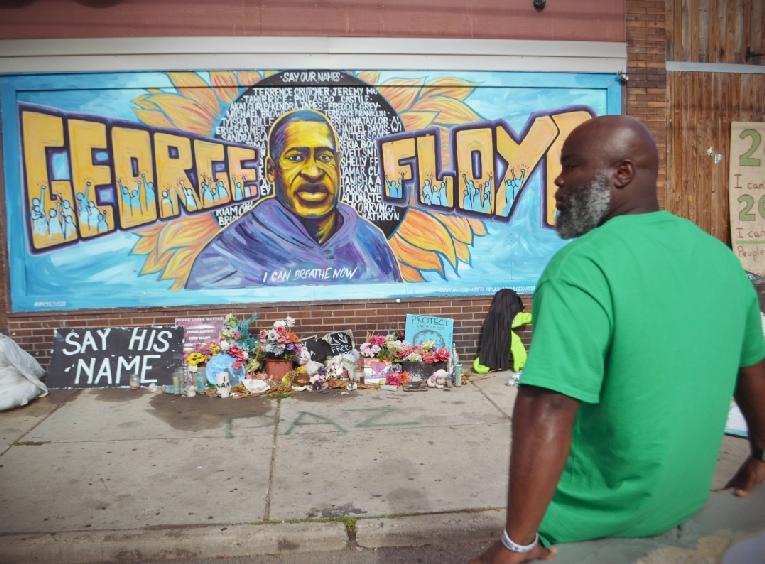
Currently, A.G. Deberry volunteers at Agape (on 38th and Chicago) in proximity to the area where the murder of George Floyd occurred by a police officer.
“Their Agape model is turning street energy into community energy,” said A.G. Deberry. “They deal with a lot of former and current gang members and try to help them change their lives for the better, and I am a product of that.”
After serving 19 years, 10 months and 8 days for murder, A.G. Deberry is not deflecting responsibility for his choices- he seeks to tell his story with the hopes that others avoid his mistakes.
“I went in at 15 and came out at 35,” said Deberry. “I have been in society for six years and spend my life volunteering and giving back. The reality is I can’t talk about my life now without taking about what I had to go through to get here. That is what Carmelo’s Way is about- a young man who went through the hardships and came out transformed and greater than.”
Born in Kankakee, Illinois, in 1979, his family migrated to Minneapolis in 1987.
“Down there (Kankakee) it’s small and there’s not a lot of opportunity,” he said. “So family on my Mom’s side they moved up here and were doing well.” Since the family bond on his mother’s side of the family was a tight knit bond, Deberry’s family moved to Minneapolis in hopes for prosperity and a better life. Unfortunately, his brother, who moved previously to Minneapolis, got in trouble, convicted for murder, at 15 in 1985.
At first A.G. Deberry, did well in school. A bright kid, he often finished his assignments far ahead of other students.
“Me and idle time didn’t get along,” he said. “I was the class clown. If I didn’t have anything to do, I would mess with people.”
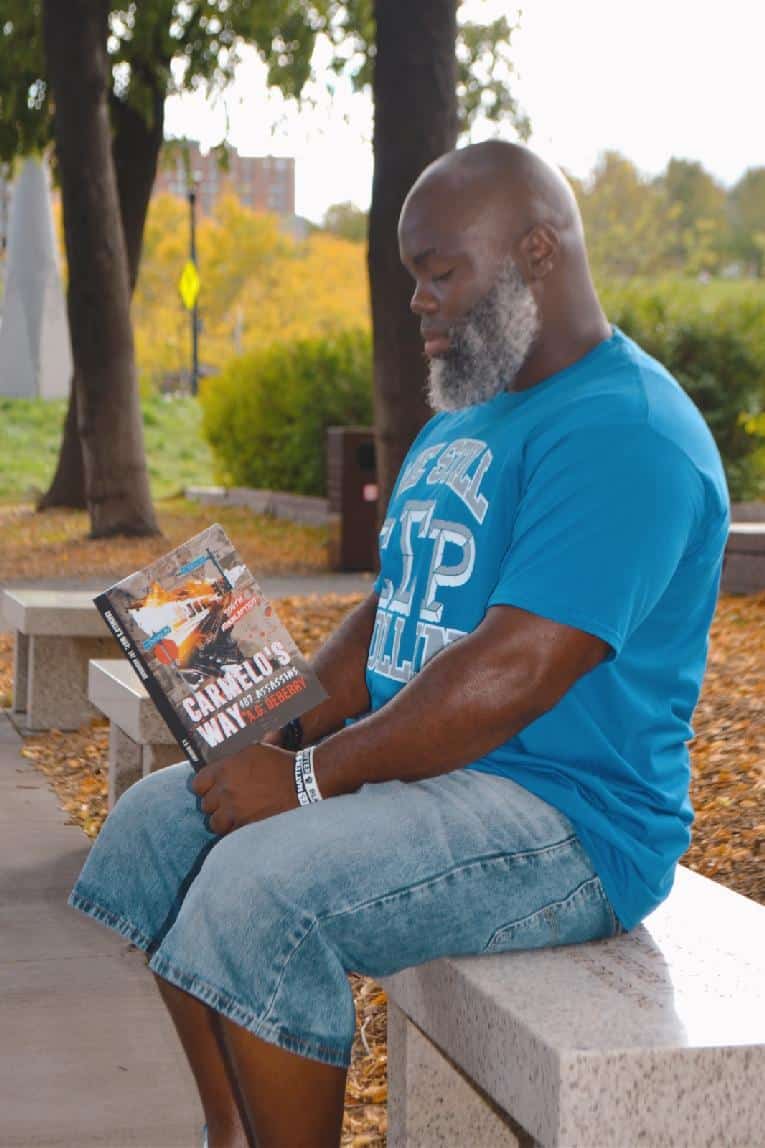
Throughout his young life, many of his teachers saw he was gifted, but didn’t understand why he wasn’t utilizing his full potential. One of his teachers held him from going to recess after one particular incident. “He said ’you are a smart kid, I don’t know why you act the way that you act,’’’ said Deberry of his teacher.
“You have so much potential, but you keep on doing dumb stuff.” Later on in life I appreciated that.” Still, he didn’t heed the advice of his teachers or family. He began a pattern of running away from home, getting into mischief and ultimately, at 12, he was arrested. “I went to juvenile when I was 12,” he said. “I was a follower, I wanted to be cool, I wanted to be like everyone else. I didn’t want to go in after dark if no one else did.” He was arrested for theft from a department store.
“I went to juvenile for the first time and cried like a baby,” he continued. “I’d never experienced being in a concrete cell. We came out 5 hours during the day. I never experienced anything like that.” Juvenile detention became a part of his life and he started hanging with the wrong crowd, some of them being members of gangs. “This is where I grew up at, these were the people I grew up in elementary with, junior high school, with, high school with, this is what I knew,” he remembered. Reality set in when a friend of his, also 15, was killed in gang violence.
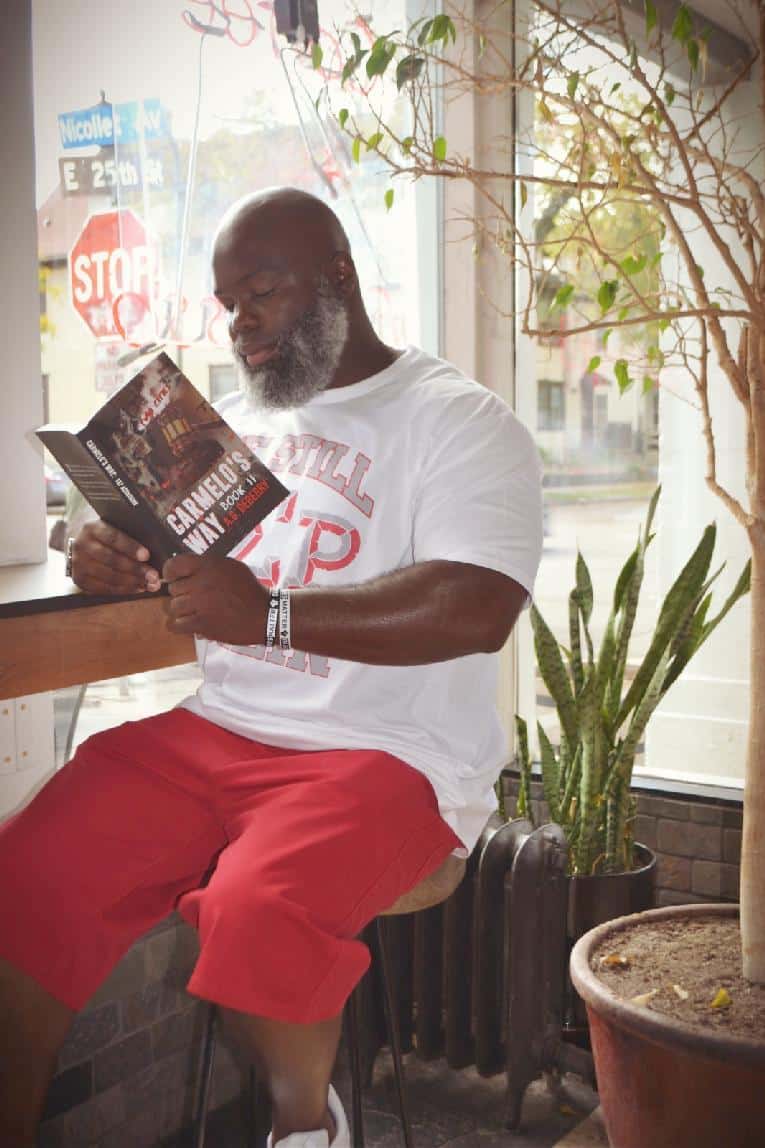
As a teenager, at 15, like his brother, A.G. Deberry had an unfortunate incident that occurred, a result of his sister being physically assaulted by her boyfriend.
“My sister came home, face bruised, body bruised,” he painfully reflected. In retribution, whether justified or not, he made a poor choice. A.G. Deberry ended up convicted for a double homicide, second degree murder. “I ended up getting a gun and I saw the dude that had beat up my sister and I ended up shooting him and his friend,” he said. They both died. Tried as an adult for second degree murder, A.G. Deberry spent much of his formative years in prison, just like his brother, seemingly a generational curse. And during the period in which he made that choice, there were many young teens that were making the same, life-altering choice. According to the Bureau of Justice Statistics, for young teens (14-17 years old), the homicide victimization rate increased almost 150% from 1985 to 1993.
Alexandria Stoddard, in her book, “You Are Your Choices,” explains that “there are some irrevocable choices; you can’t undo every choice.” Murder, of any kind, is an irrevocable choice- one that has reverberating, ripple effects- a choice that affects families and communities, particularly communities of color.
“Environment played a big part in who I was,” he said. “We didn’t know where we were coming to when we moved to Minneapolis, but we moved into a neighborhood that was not liked by other people. The people I grew up with had generations where dad, and granddad and brothers are in this game. So they’re in it at 8,9, 10 years old, and that became my reality.”
While in prison, he realized a new reality.
“When you get time, you get time in months, and they told me I was getting 346 months, and 306 months ran concurrent, I was like ‘I’m never going home,’” he said.” And then they say your out date is 2015 and it’s 1998 when they were telling you this, I didn’t see 2015. That was too far for me to see.”
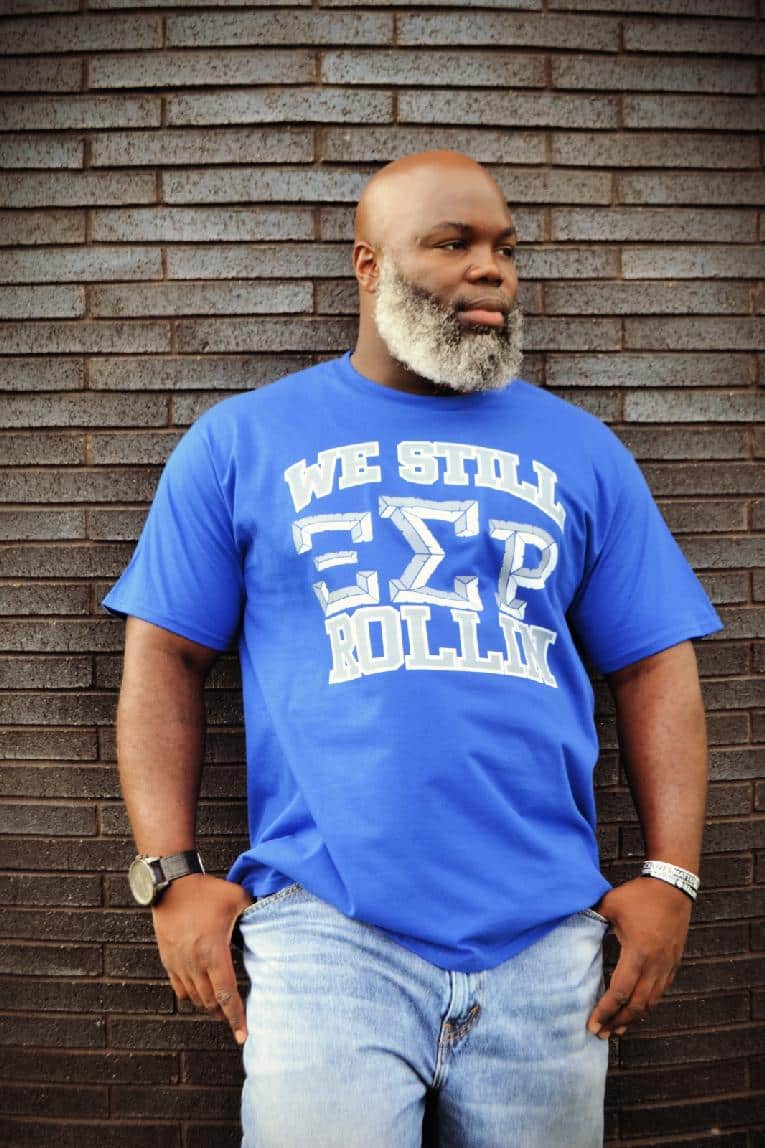
In prison, he changed his life, went to counseling for “criminal thinking.” He began hanging around spiritual and religious leaders in prison and was determined to turn his life around, with his sights set on helping others avoid the path he’d taken. Currently he mentors people getting out of prison.
“I often hear people say, I had no choice,” he explained. “So and so did it, so I did it, my dad did it, so they had no other options. That’s always been the excuse for a young black man that selling drugs, gang banging that’s killing, those that’s living the street life- I had no choice. The generational curse starts to begin.”
Choices are the essence of life. And A.G. Deberry is hoping to help others make better choices, better than the choices he made.
“How can I reach them, that was my thinking,” he said. “Hopefully this is the time to build rather than destroy each other.”
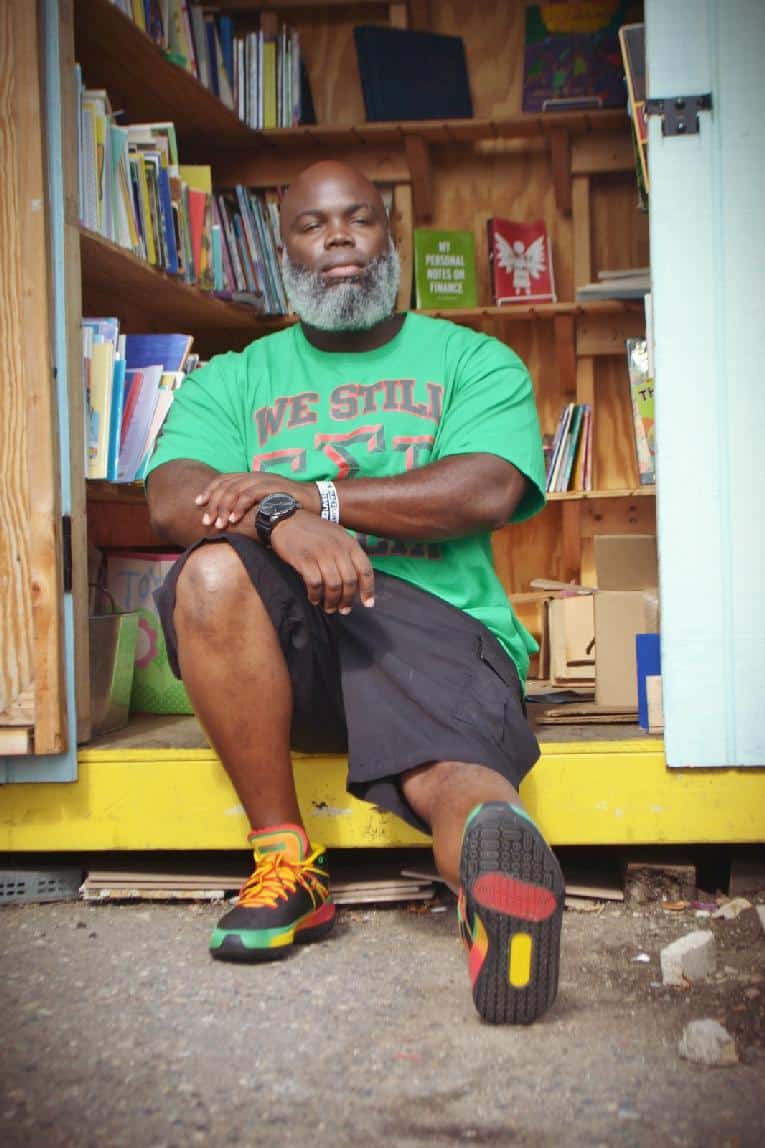
His books, one and two, address the hardships he endured and the actions he had to take in order to survive. Book III, a work in progress, begins to deal with his character’s adaptation to his community.
“The book is structured more around Black pride, unity and growth,” said A.G. Deberry. “Book IV will be the full circle of change. My books deal with the reality of urban life. The truth is that we talk so much about the bad guy and glorify his/her actions and the bad guy usually ends up dead or in prison for life.”
“Carmelo’s Way:187 Assassins Part I” (ISBN 978-1-300-15451-8) and “Carmelo’s Way:187 Assassins Part II” (ISBN 978 -1-300-02990-8) are available on multiple platforms.
We Publish News 24/7. Don’t Miss A Story. Click HERE to SUBSCRIBE to Our Newsletter Now!


